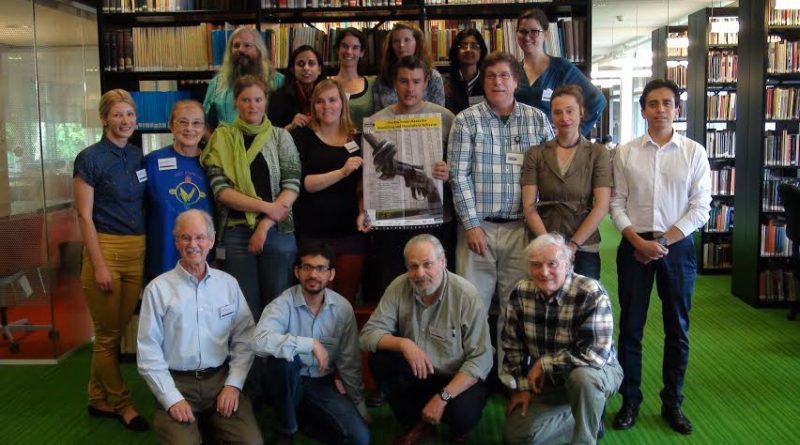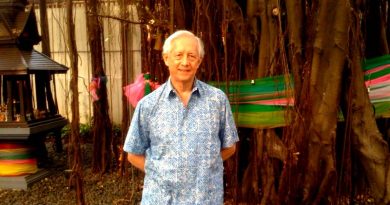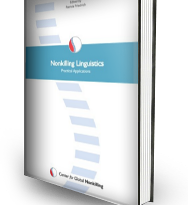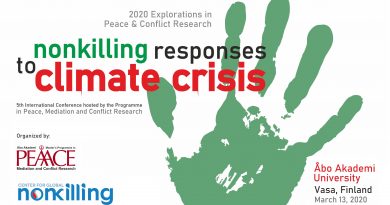Nonkilling Scientific Workshop held in the Netherlands
The Center for Global Nonkilling organized in partnership with the Lorentz Center and several other institutions a week-long scientific workshop on “The Bio-Social Bases for Nonkilling and Nonviolent Behavior”. The workshop took place at the Leiden University Lorentz Center from May 19 through May 23, 2014, involving a group of 23 scholars, researchers, students and practitioners from 15 countries, with the presence of a science journalist and two documentary film-makers.
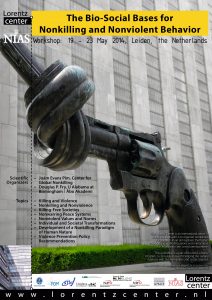 The main scientific organizers were Douglas P. Fry, Professor at the University of Alabama at Birmingham and member of CGNK’s Nonkilling Anthropology Research Committee, and CGNK Director Joám Evans Pim. Support for the event was provided by the Netherlands Organization for Scientific Research, the Dutch Ministry of Education, Culture and Science, the Netherlands Institute for Advanced Study, the Institute for Economics and Peace, the Asian World Center at Creighton University and both UAB and CGNK.
The main scientific organizers were Douglas P. Fry, Professor at the University of Alabama at Birmingham and member of CGNK’s Nonkilling Anthropology Research Committee, and CGNK Director Joám Evans Pim. Support for the event was provided by the Netherlands Organization for Scientific Research, the Dutch Ministry of Education, Culture and Science, the Netherlands Institute for Advanced Study, the Institute for Economics and Peace, the Asian World Center at Creighton University and both UAB and CGNK.
This interdisciplinary workshop brought together scientists and scholars for one week to focus directly on nonkilling and nonviolence, integrating knowledge from anthropology, evolutionary biology, neuroscience, peace studies, and psychology. Central were to develop a holistic perspective of nonkilling and nonviolent behavior and to explore the policy implications of this new paradigm. The workshop will result in a carefully planned and integrated edited book and a list of applied recommendations, in the form of a policy paper to be launched by the Institute for Economics and Peace. A short video on the workshop will be released later on this year and various materials and interviews from the event will be featured in Philip Hendel’s documentary film on the origins of violence.
Workshop Report
Workshop Goals
This workshop aimed at integrating data relevant to nonkilling/nonviolence from natural sciences such as neurophysiology, biological anthropology, and behavioral ecology with knowledge from social sciences/humanities such as social/cultural anthropology, peace psychology, and peace studies, through a synthesized and holistic perspective that could contribute to practical applications in the field of violence prevention.
The workshop was able to challenge the still prevailing Hobbesian view of humans as inherently violent beings (e.g., Konner, 2006; Pinker, 2011; Wrangham & Glowacki, 2012), explored existing killing-free societies, compared nonkilling practices among cultures and scrutinized social and ethnographic misrepresentations shaped by the assumption of human intraspecific lethal predisposition. The understanding of the biosocial bases of human nonviolent and nonkilling behavior provided a firm knowledge base for consideration of how to develop societies in which lethal violence is greatly reduced.
The following overarching goals were addressed during the workshop:
- To seek new insights into nonkilling human capabilities for the transition toward societies where killing, threats to kill, and conditions conducive to killing or potentially lethal violence are absent;
- To make research, education, training, advocacy, policy, and institution building recommendations to promote nonviolent and nonkilling social transformation;
- To explore future activities that could serve as catalysts for the application and further dissemination of the recommendations of the workshop.
Results and Participant Feedback
The overall impression of both organizers and participants is that the workshop was a huge success, in terms of innovation, participation, interaction, and plans for the future. Some of the financial sponsors also indicated their satisfaction with the results and with the resulting products that are being prepared.
The workshop gathered 22 participants coming from ten countries, six of which were students at Abo Akademi University, originally from another five additional countries. Dutch participants included scholars from Leiden University and the University for Humanities. 50% were women and 50% male. The following fields were represented: public health, international law, ethology, behavioral ecology, neurology, anthropology, aggression, political philosophy, international relations, primatology, intercultural communication, education, and humanities.
Participants appreciated the interactive format that allowed for both small groups and plenary discussions, encouraged equal participation of individuals and, given the interdisciplinary setting, enabled the group to “cover a lot of territory collectively”. Focused exercises on specific problems and products allowed both for the building of momentum across the week’s discussions and for the setting of milestones regarding future accomplishments. The word “inspiring” was a common descriptor in many of the participant feedback papers.
Feedback also indicated that the physical facilities and the facilitation of the various sessions were instrumental to achieving the outcome in terms of discussion and planning, and so were the shifting methodologies, arrangements and pre-workshop assignment that allowed for a jump-start beginning that reduced some of the disciplinary barriers.
Workshop products and continuation
As envisioned, several interdisciplinary collaboration projects are under way following planning and discussions that took place at the workshop and after.
Preliminary contacts have been made with Oxford University Press and a formal proposal will follow after participants indicate the titles of their chapters. It is expected that chapters for the book should be completed by the end of 2015.
Progress has also been made with the short collective policy paper “The Bio-Social Bases for Peace: Policy Recommendations”, that will be presented to the Institute for Economics and Peace for its publication and distribution among several thousand influential readers. The basic findings of the policy paper will be expanded into a collective academic article to be submitted to a peer-reviewed journal, possibly the Journal of Aggression, Conflict and Peace Research.
Popular dissemination of the workshop discussions has also been possible through an article in the science section of the Flemish Dutch-language De Standaard newspaper (circulation: 98,000), published by Tim Vernimmen on July 17, 2014 (‘Wie een moord pleegt, mankeert iets’).Documentary filmmaker Philip Hendel interviewed most of the workshop participants and recorded some of the discussions, that will be featured in both a longer documentary project on the origins of violence and a shorter video focused on the workshop itself.
Further outreach at Leiden University was also possible through the participation of Jessica Pierce at the Lorentz Center Highlights Lectures with her May 20 presentation “At War with Animals” with a full and engaging auditorium that enabled a stimulating discussion.
As an additional continuation of this Lorentz Center workshop, the suggestion of many of the participants to hold an specific meeting focused on nonkilling and education will be materialized on March 23-25, 2015, with a conference under the title “Explorations on Peace & Conflict Research: Nonkilling Education” to be organized in Vasa, Finland, by Åbo Akademi University and the Center for Global Nonkilling. The conference will draw a set of participants of the May 2014 Lorentz Workshop and an additional set of scholars with expertise in education and related fields.
Sponsorship
The organizers are grateful to all the financial sponsors that made this workshop possible, namely: Lorentz Center, the Netherlands Organization for Scientific Research, the Dutch Ministry of Education, Culture and Science, the Netherlands Institute for Advanced Study, the Institute for Economics and Peace, the Asian World Center at Creighton University, the University of Alabama at Birmingham and the Center for Global Nonkilling. Some of the participants also received separate travel grants from their own institutions, which add on to the recognition of the Lorentz Center as an international venue for advanced scholarship.
Joám Evans Pim
Douglas Fry

